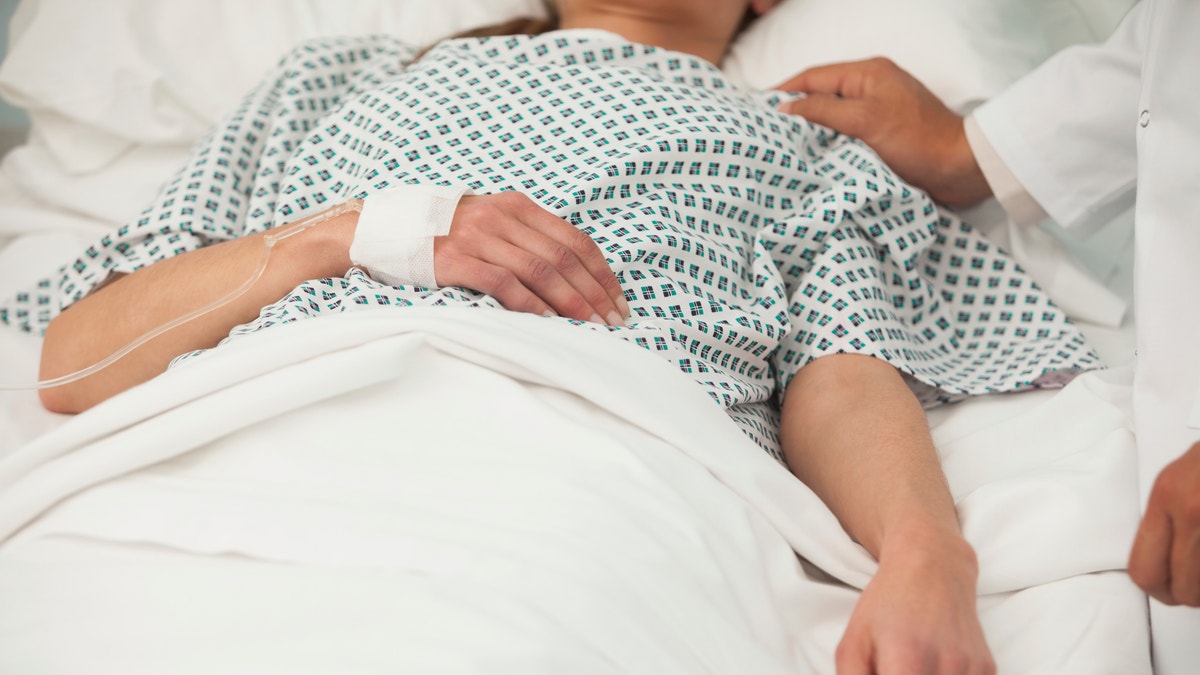
Old sick lady lying in hospital bed (Wavebreakmedia)
You’re feeling sick several hours after a tasty meal — is it just a “food coma,” or a case of salmonella poisoning?
If it’s the latter, you may feel ill and experience discomfort for several days. The infection is rarely fatal.
The problem may stem from your own dinner table: consuming raw and undercooked animal products that are contaminated can cause infection, the Food and Drug Administration (FDA) says. Contaminated raw produce is another possibility, according to the agency.
Animal feces may contain the bacteria. FoodSafety.gov says that “if water used to irrigate a field has animal poop in it, the water can contaminate the food growing in the field.”
What are some salmonella poisoning symptoms?
Symptoms include fever, diarrhea and abdominal cramps, said Dr. Pauline J. Jose of Proactive Health Labs, a nonprofit involved in health information.
People may experience “explosive diarrhea or vomiting or both,” microbiologist Kiran Krishnan of PeakBiotics, a probiotic supplement manufacturer, told Fox News. He reiterated that other signs include fever and abdominal cramps.
Bloody stool, chills, headaches and nausea can also be signs, the Mayo Clinic says.
HOW TO AVOID SALMONELLA POISONING DURING THE HOLIDAY SEASON
When will I start showing symptoms?
It can begin several hours to a few days after being exposed. In some instances, symptoms don’t show up until three days later, Krishnan said.
People may show symptoms for four days to a week, the Department of Health and Human Services says.
What are some salmonella issues?
“If you can’t drink enough to replace the fluid you’re losing from persistent diarrhea, you may become dehydrated,” the Mayo Clinic warns.
There also can be other concerns.
Though the majority of cases are “really benign,” the infection can be serious and spread to the blood, affecting joints and bones, according to Jose.
Are there other ways I can get salmonella poisoning?
Yes. You can be exposed through contact with reptiles and amphibians, Jose said. These include pet turtles, which she recommended against having around babies.
“People can also become infected with Salmonella by handling contaminated food, such as contaminated pet food, or touching contaminated surfaces and utensils and then accidentally transferring the bacteria from their hands to their mouths,” the FDA says.








































